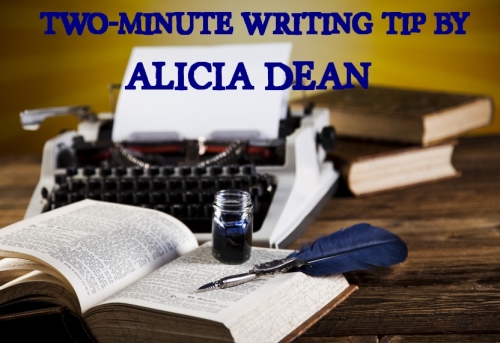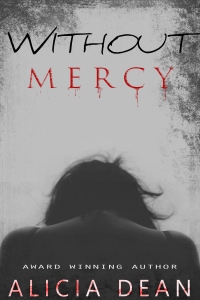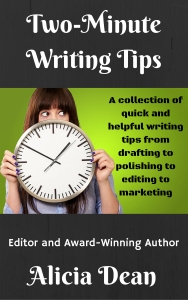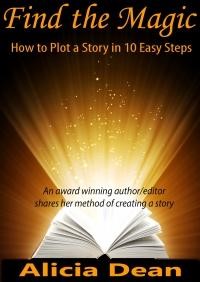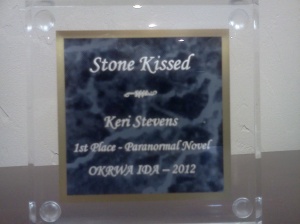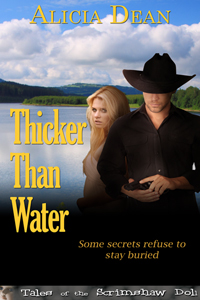Got two minutes? Then check out this week’s quick tip ~ Some examples of my errors and how to avoid the same.
Hello and welcome…I am a freelance editor and an editor for The Wild Rose Press, as well as an author. I often struggle with my own writing, and I have found that sometimes, a little reminder of ways to improve the process can be helpful, so, I like to share these moments of brilliance with others :). But, in this busy world of ours, who has time for pages and pages of writing tips? That’s why I’ve condensed mine down to quick flashes you can read in (approximately) two minutes. Enjoy…
Disclaimer: All of my tips are suggestions, and are only my opinion. And, for the most part, there are exceptions when going against my advice will make your story read better. Take what works, leave the rest.
Nothing can bring a story to life like listening to it on audio. I am currently in the process of having Without Mercy made into an audio book. My narrator is fantastic. She is so good that sometimes, I’m caught up in my own story, and I’m anxious to see what happens next, even though I know exactly what happens next. 🙂
On the down side, it also brings mistakes or poorly worded sentences to light in full blown clarity. Some of the issues I’ve ‘heard,’ and this doesn’t include just good old-fashioned typos and such, are…
Times when I use pronouns when I should use proper names:
1 – “Shut up.” Royce whacked the butt of the gun into his chin. Steve’s head jerked back, and he grunted in pain.
~ Sure, it’s obvious Royce wouldn’t whack the butt of the gun into his OWN chin, but this part still took me out of the story for a second. Would have been better off to word it as:
“Shut up.” Royce whacked the butt of the gun into Steve’s chin. Steve’s head jerked back, and he grunted in pain.
2 – During the trip up, Aiden had removed the handcuffs, and Bishop made a few calls to Royce with updates, making him think all was going according to plan. He seemed convinced he had to help them for the safety of his family.
~ Better:
Bishop seemed convinced he had to help them for the safety of his family.
3 – Bishop trailed behind him as if concerned he’d rob the place. “I don’t know what you expect to find.”
Aiden shrugged. “Maybe nothing.”
He rifled through dresser drawers, kitchen drawers, every potential hiding place.
~ Better: Aiden rifled through dresser drawers, kitchen drawers, every potential hiding place
It’s preferable to repeat names than to have readers pause or be confused, even a little.
Unnecessary information:
“Steve, I’m sorry, I told you, Emma’s ill, and I don’t think—”
“Steve!” Emma’s voice sang out from behind her, and China cringed. Damn, she was hoping to send him on his way before Emma found out he was here. “I missed you!”
If you read the entire section and know the context, it’s obvious that China was hoping Steve would leave without Emma seeing him. This part just sounds telling: she was hoping to send him on his way before Emma found out he was here. I should have eliminated that phrase completely.
Poor word choice:
He was comfortable, a rock. Exactly what she needed.
A rock is comfortable? I don’t think so. Better:
He was comfortable, solid, a rock. Exactly what she needed.
Misplaced modifier:
Moments later, coming from outside, he heard a grunt and a strangled yell.
~ Sounds like he was coming from outside. Better:
Moments later, he heard a grunt and a strangled yell coming from outside.
Yes, I used a filter word, ‘heard’ as well. I could have done this:
Moments later, a grunt and a strangled yell came from outside
As many times as I went over this manuscript, those issues never occurred to me. But, with some distance and hearing it all read aloud, I’m picking up on things that need improvement. I know I’ve previously suggested reading aloud into a recorder, but I want to reiterate and show examples of issues you might not notice until you do. So, if you can, set your story aside for at least a few weeks, a month is preferable. And, definitely read it aloud into a recorder. Or, ask someone else to read it for you. You’ll be amazed at what you pick up. You can also have a PDF read aloud to you, or you can have your Kindle read aloud to you. Those voices can be a little robotic, but it’s much less time consuming than reading it all yourself. 😉
Until next time…Happy Writing!
~*~*~*~*~*~*~*~*~*~*~*~*~*~*~*~*~*~*~*~*
NEW RELEASE – Now Available
(Click on the cover to be taken to the Amazon Buy Page)
~*~*~*~*~*~*~*~*~*~*~*~*~*~*~*~*~*~*~*~*
*** If you would like to send me a few sample pages (around 7500 words or so, even though I will not edit that many on the blog. It just gives me more to choose from) for me to edit and share on an upcoming blog post, please do so in the body of an email to AliciaMDean@aol.com. Please use the subject line: “Blog Submission” This is for published or unpublished authors. In the email, please include whether you would like me to use your name or keep it anonymous, and whether or not you would like me to include any contact info or buy info for your books. Also, you can let me know if you would like for me to run my edits by you before posting on the blog. Please keep in mind, this is for samples to use for blog posts. I will not edit or use samples from all the submissions I receive, but I will use as many as possible.
~*~*~*~*~*~*~*~*~*~*~*~*~*~*~*~*~*~*~*~*
How to write a novel? That is the question. There are probably as many answers to that question as there are people who ask it.
Wanting to write and actually doing it are two very different things. I am well acquainted with the sometimes grueling process of churning out a story. Over the years, I have tried many methods for creating and completing manuscripts, and have tweaked and honed it down to a workable (for me) process.
Using specific examples from one of my own novels, Without Mercy, I share my method in this mini how to book. The first eight steps actually deal with plotting while the last two are designed to help expand your outline into a well-developed draft. There is no one, perfect way to create a story, but there will be a method, or methods that work for you. I’m not sure if this is the one, but it works for me. Only you can decide if it also works for you. Fingers crossed that it does!
*** Warning – Please do not purchase without reading a sample. (This is solid advice for any book, fiction or non. If you are not intrigued in the sample, you will likely not enjoy the book)
Amazon: Click Here

